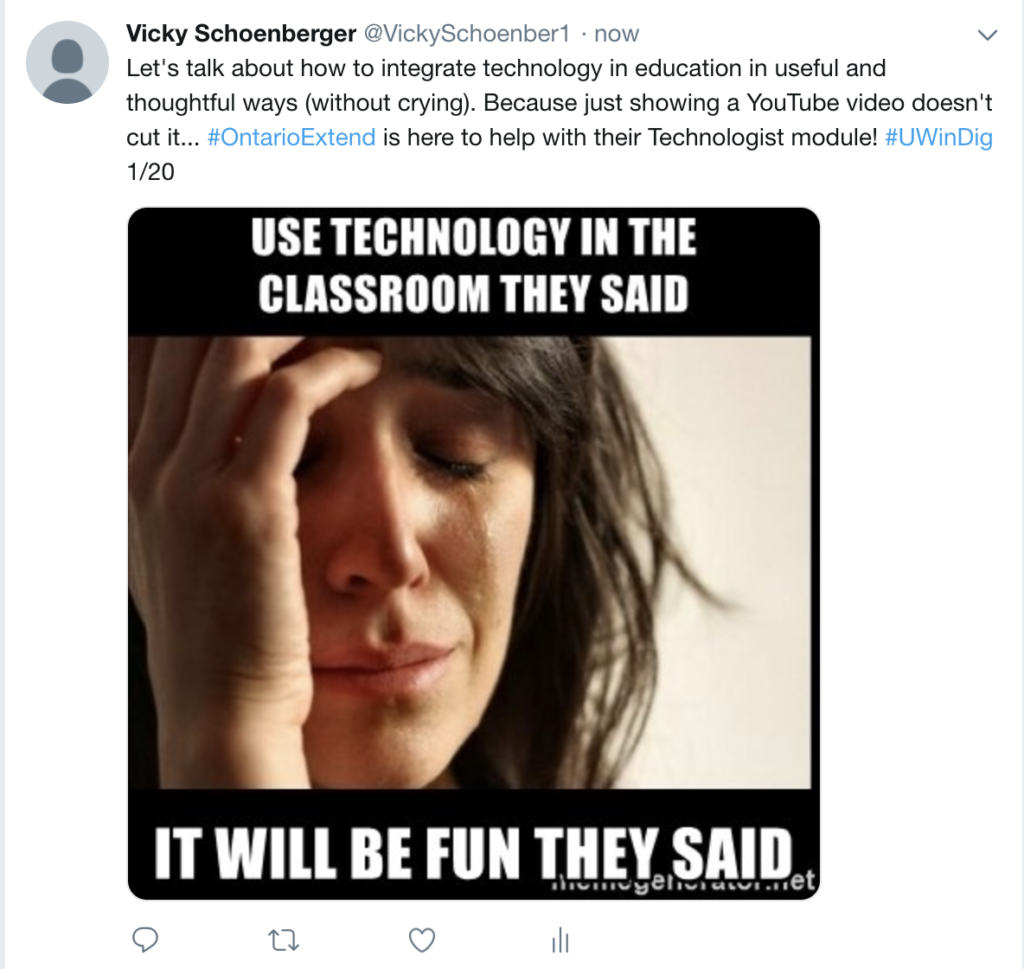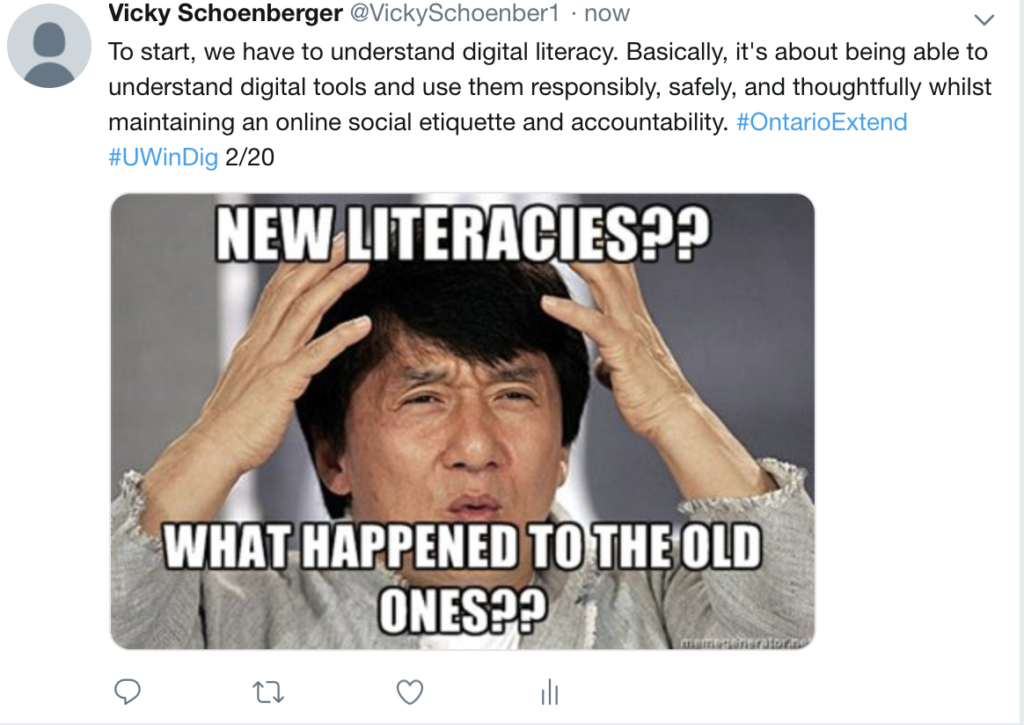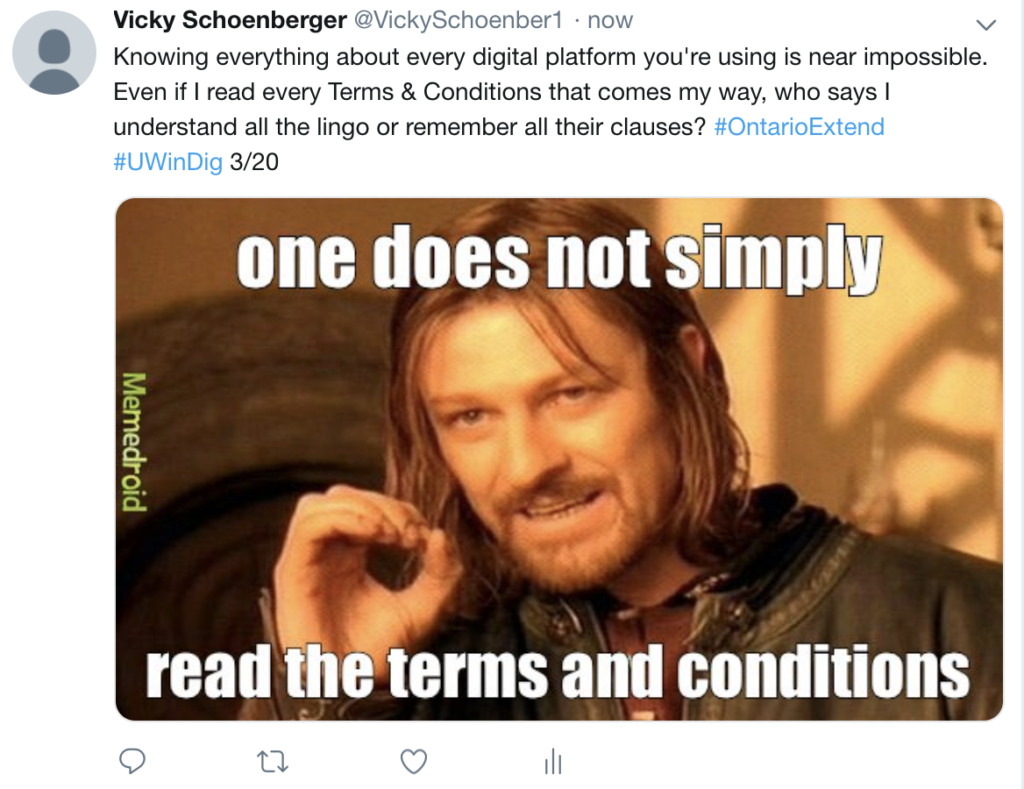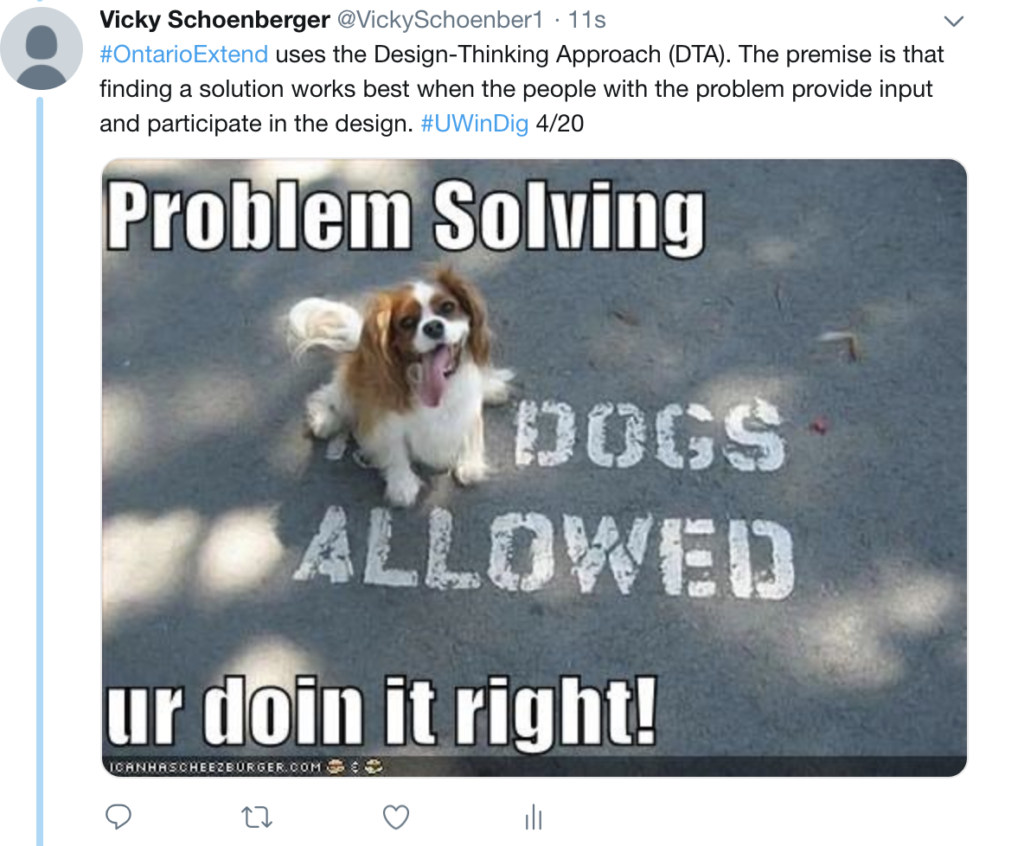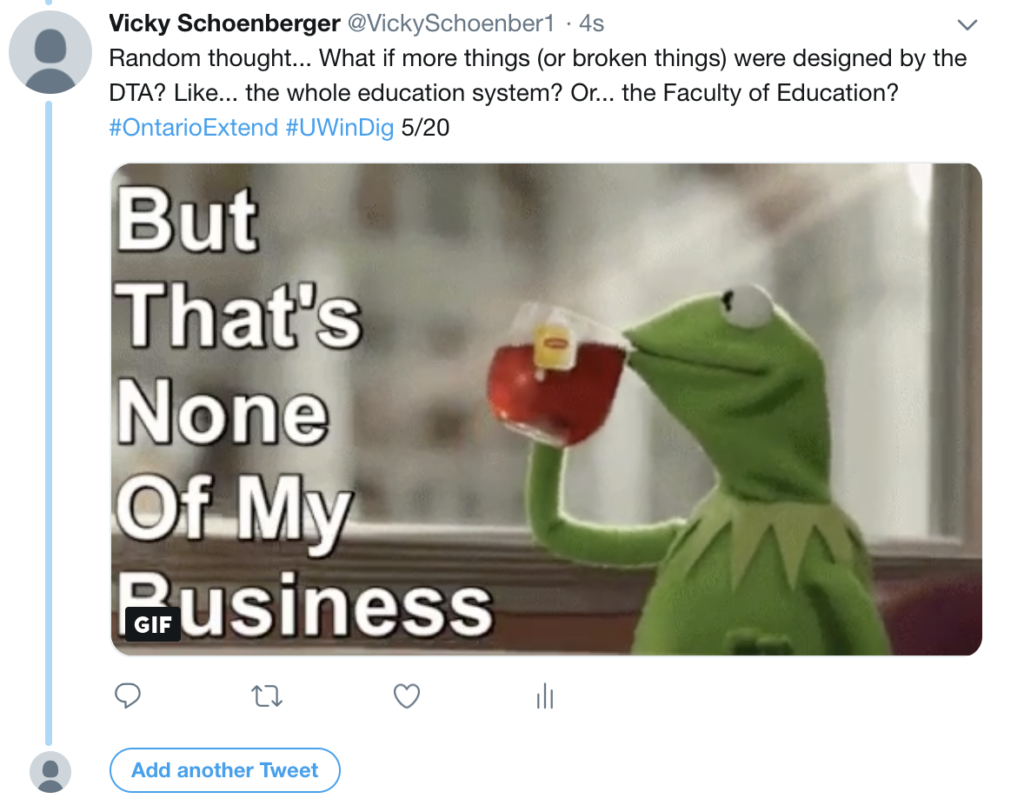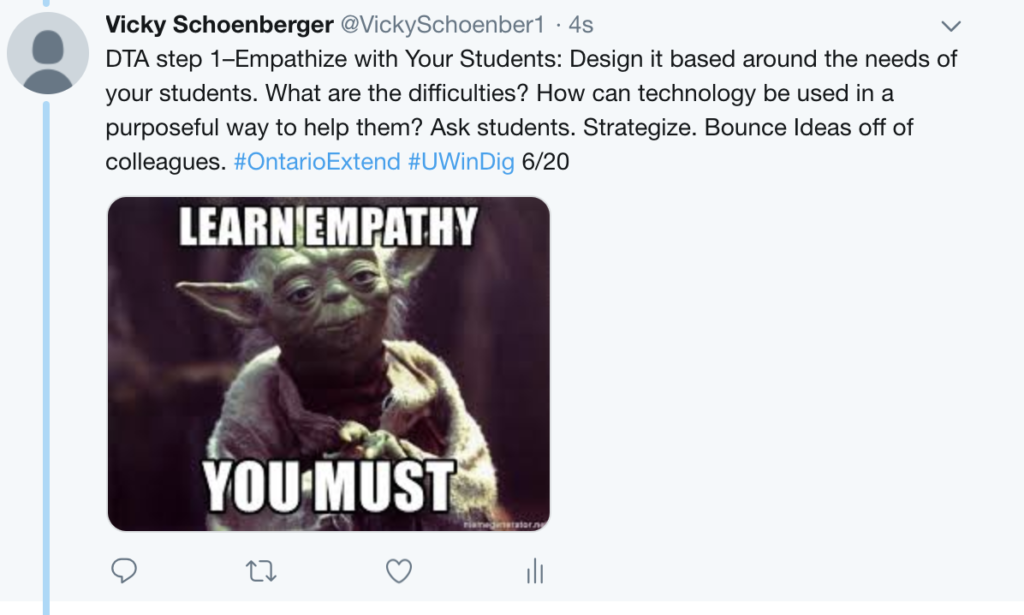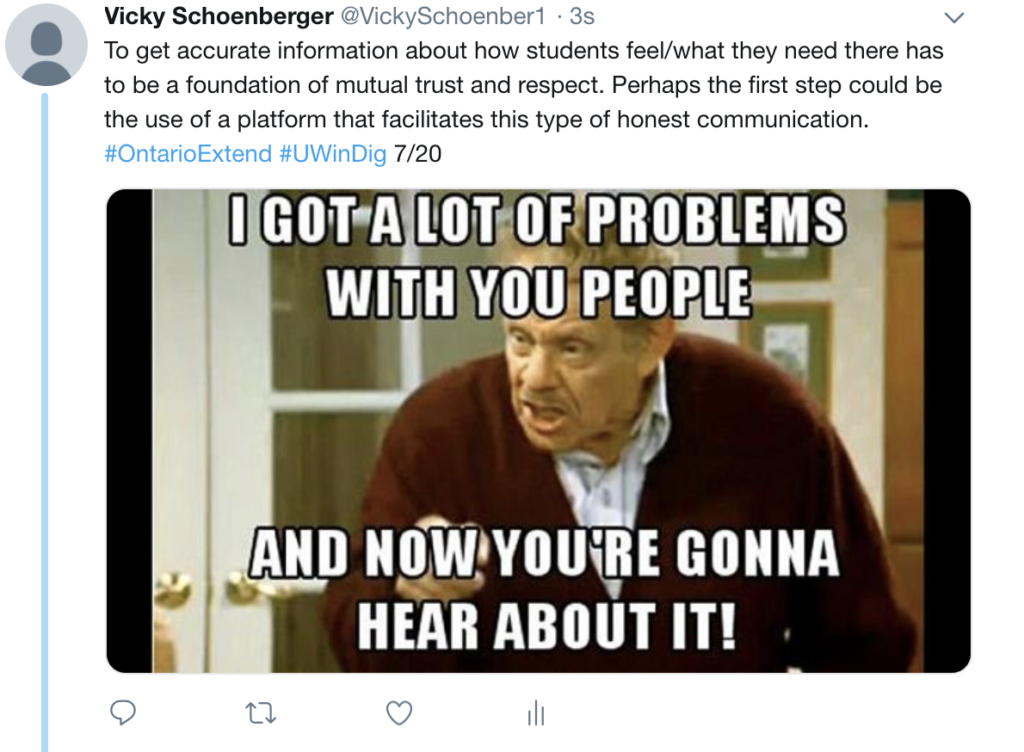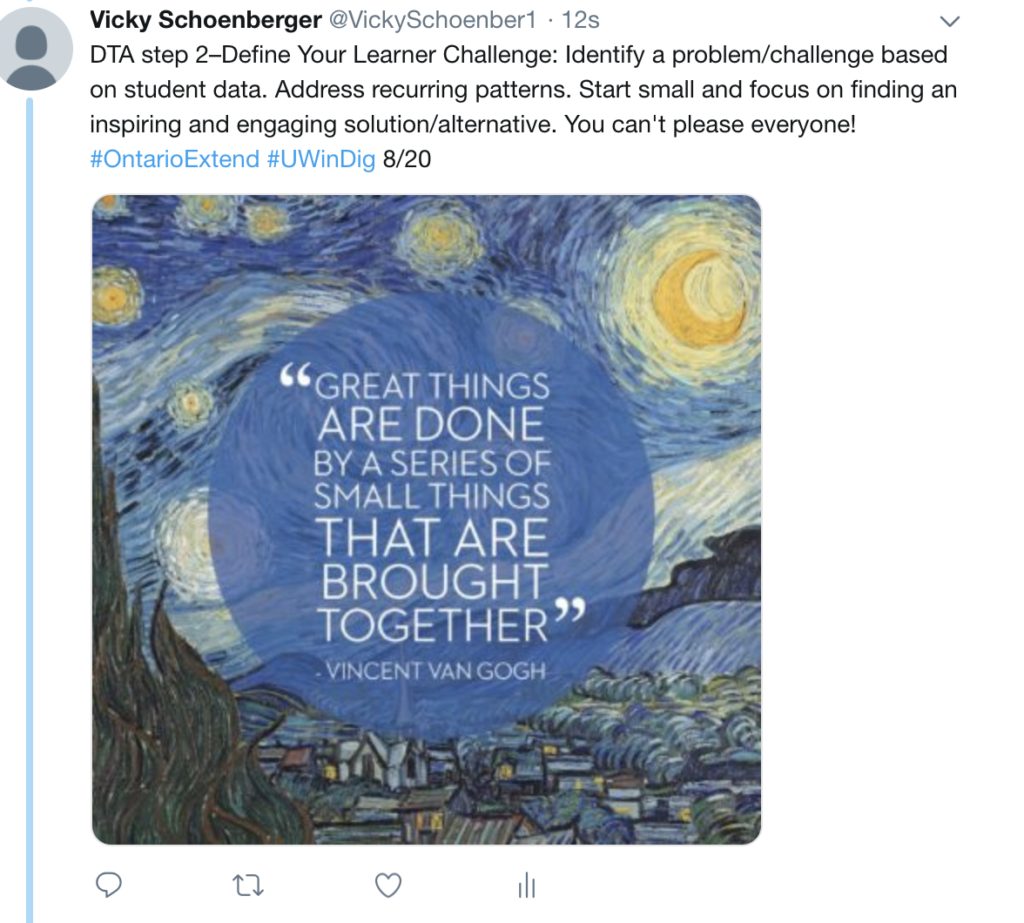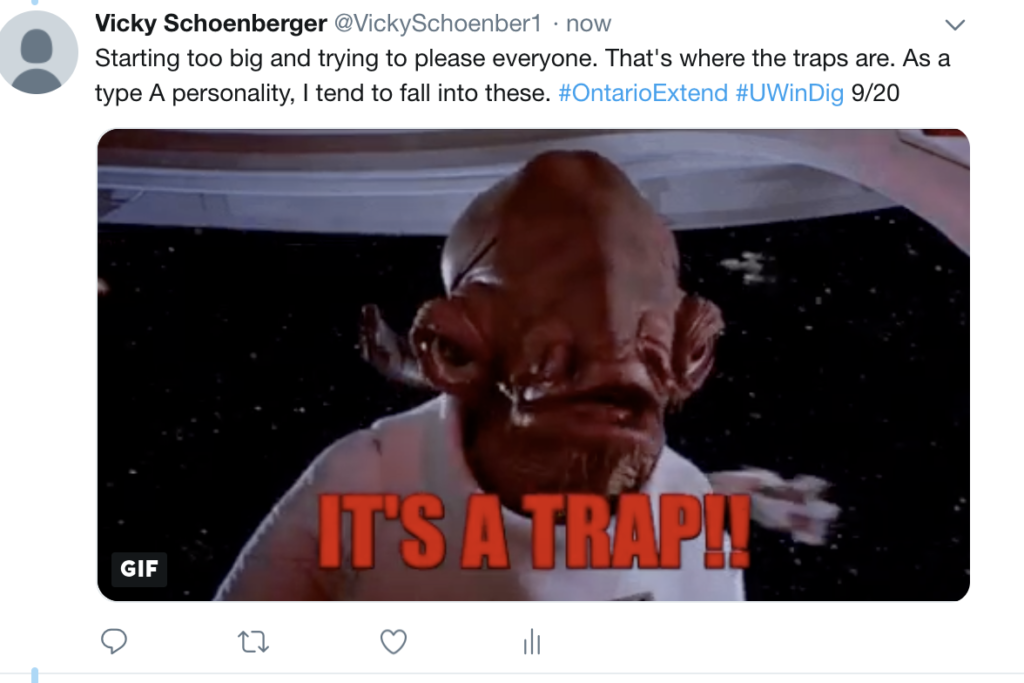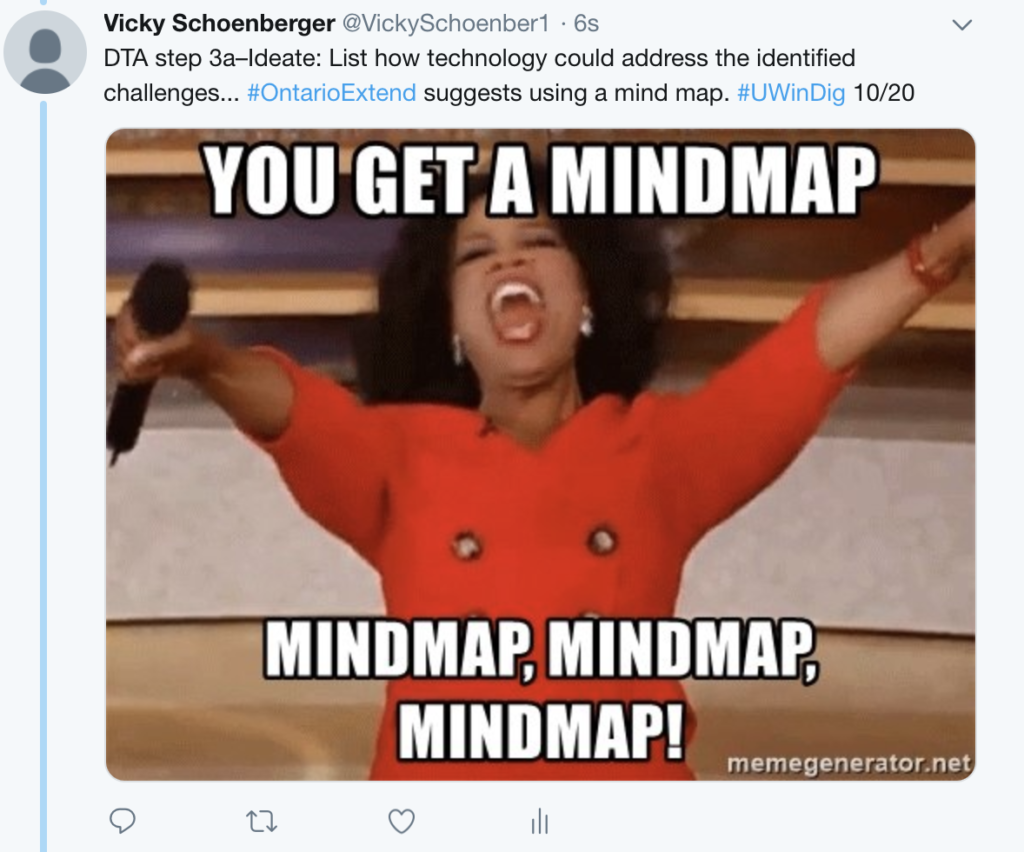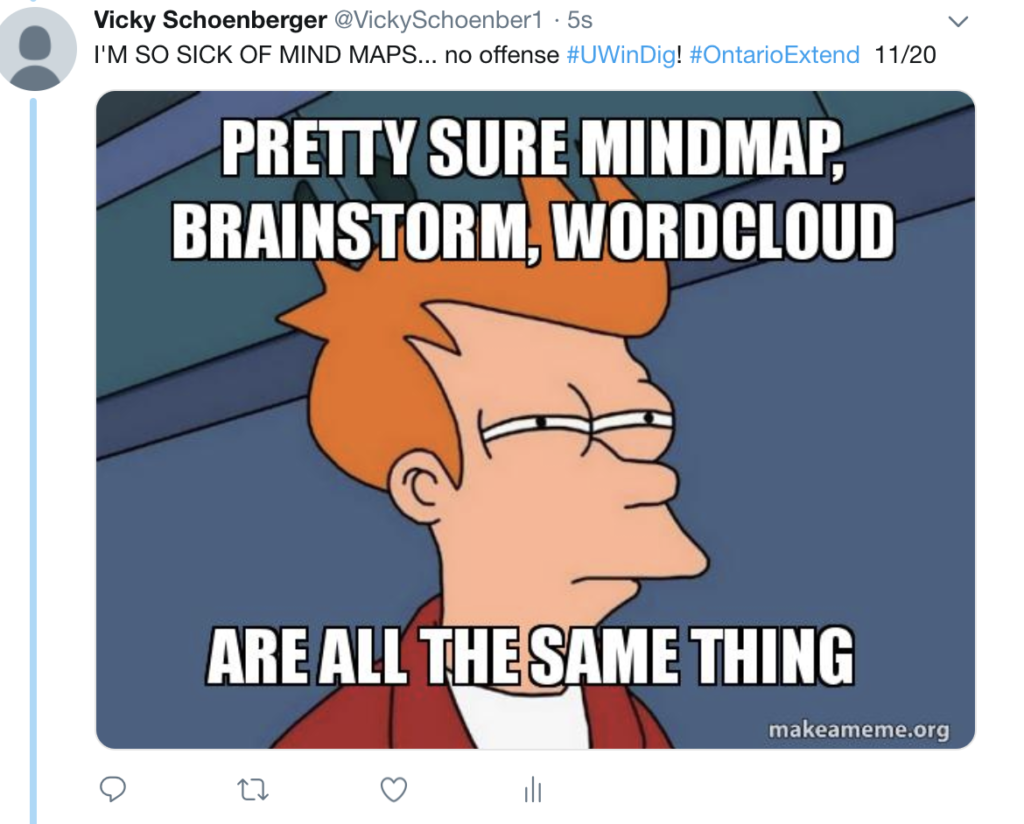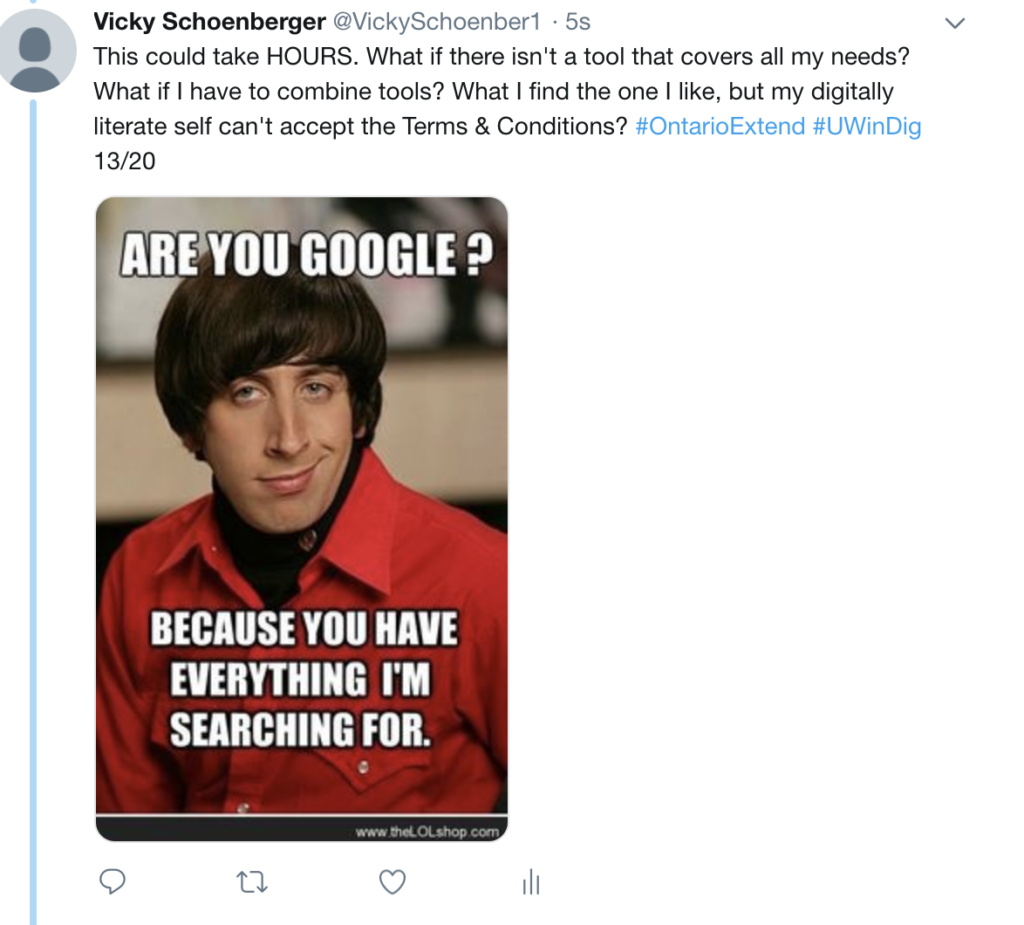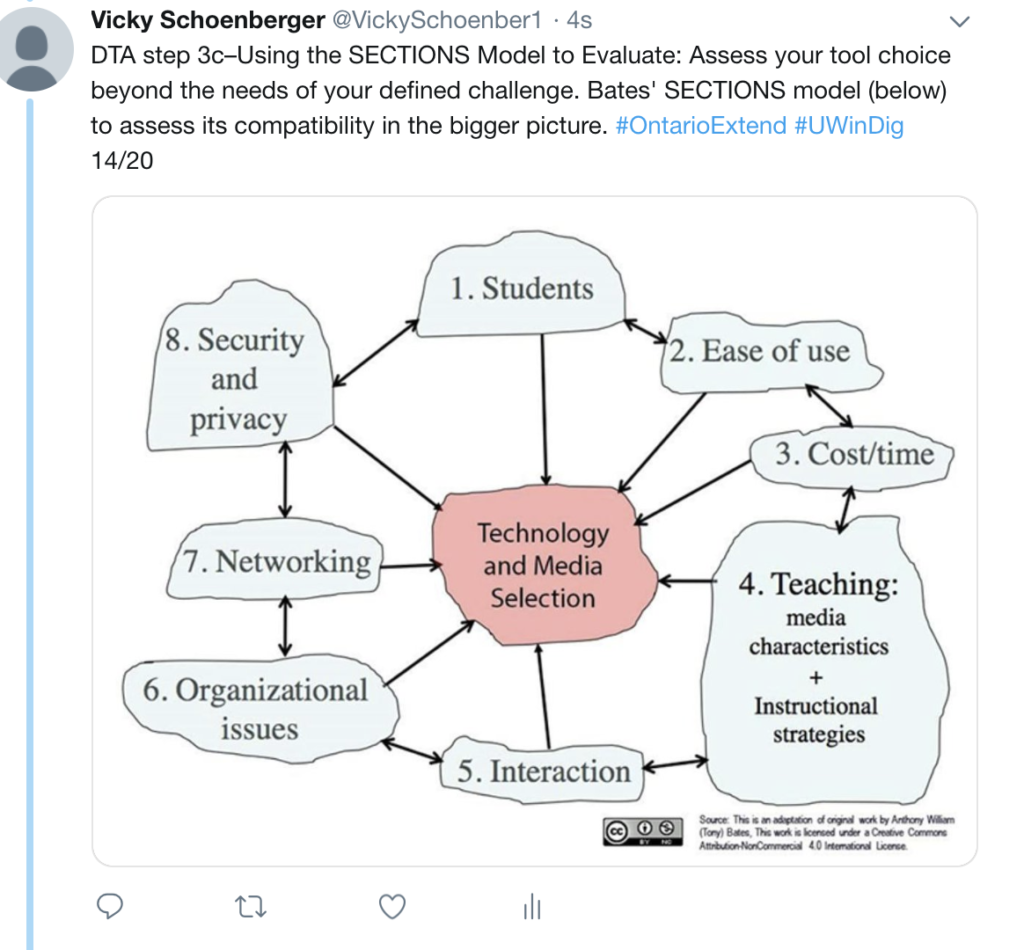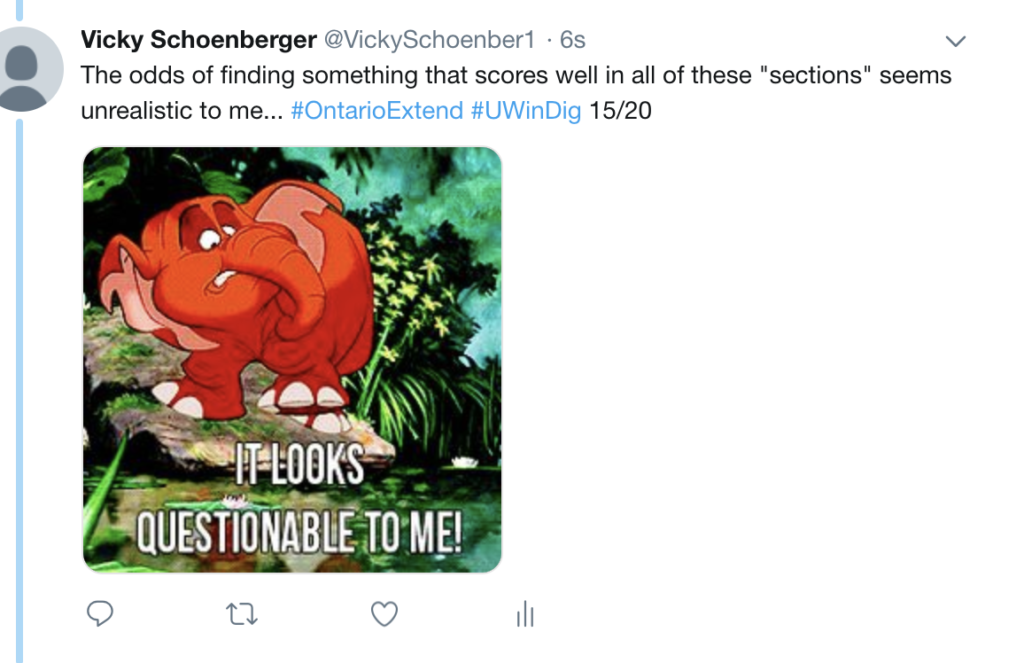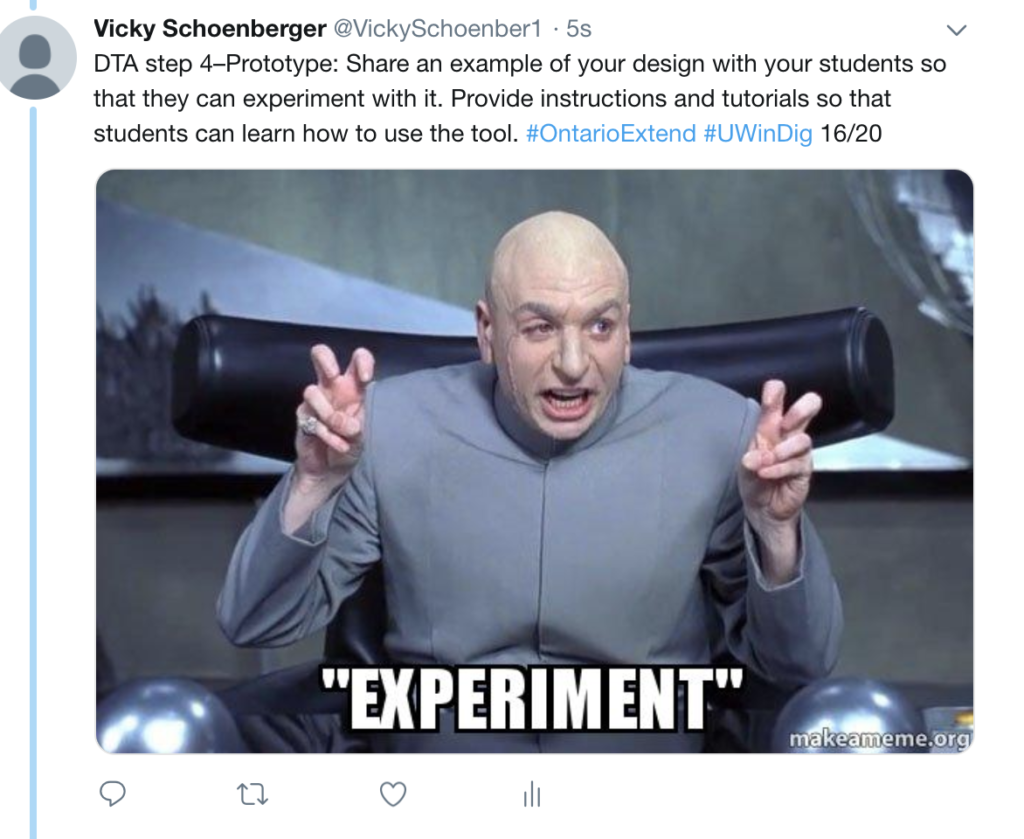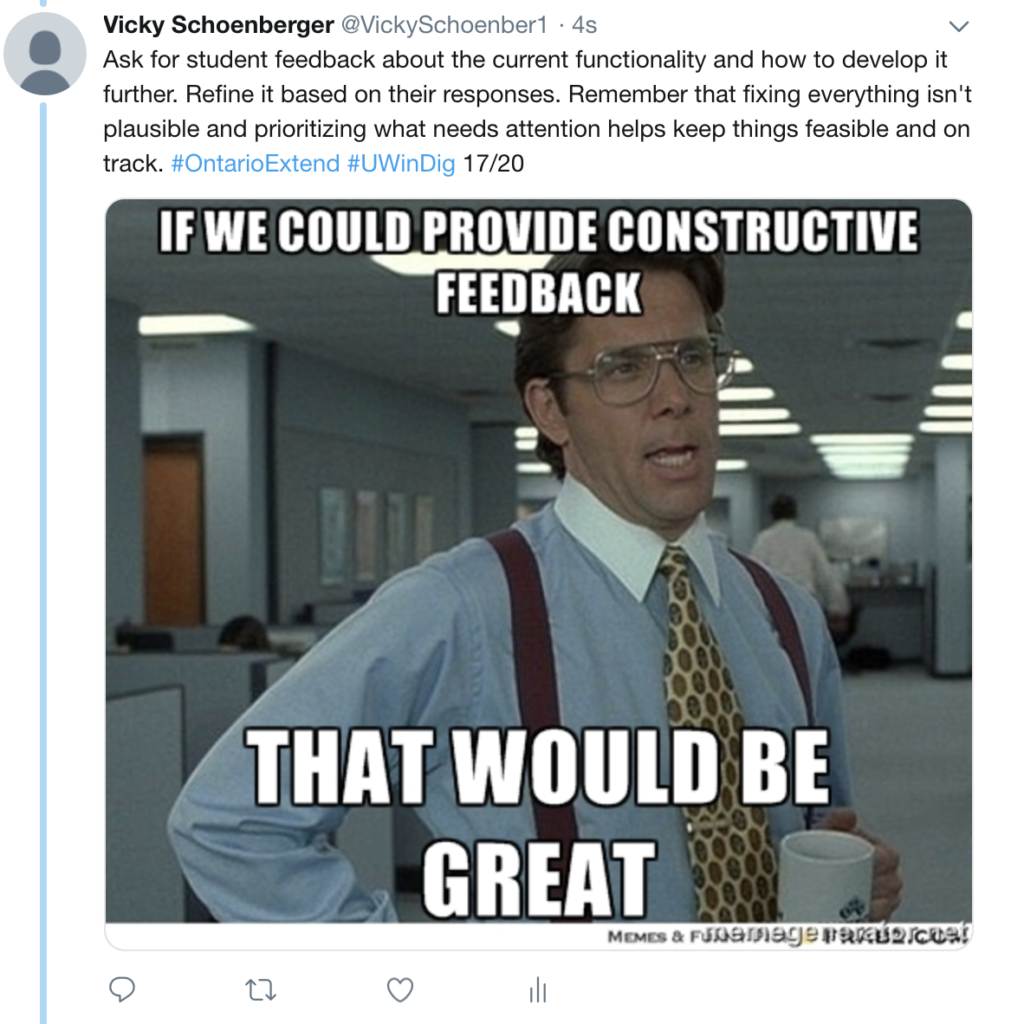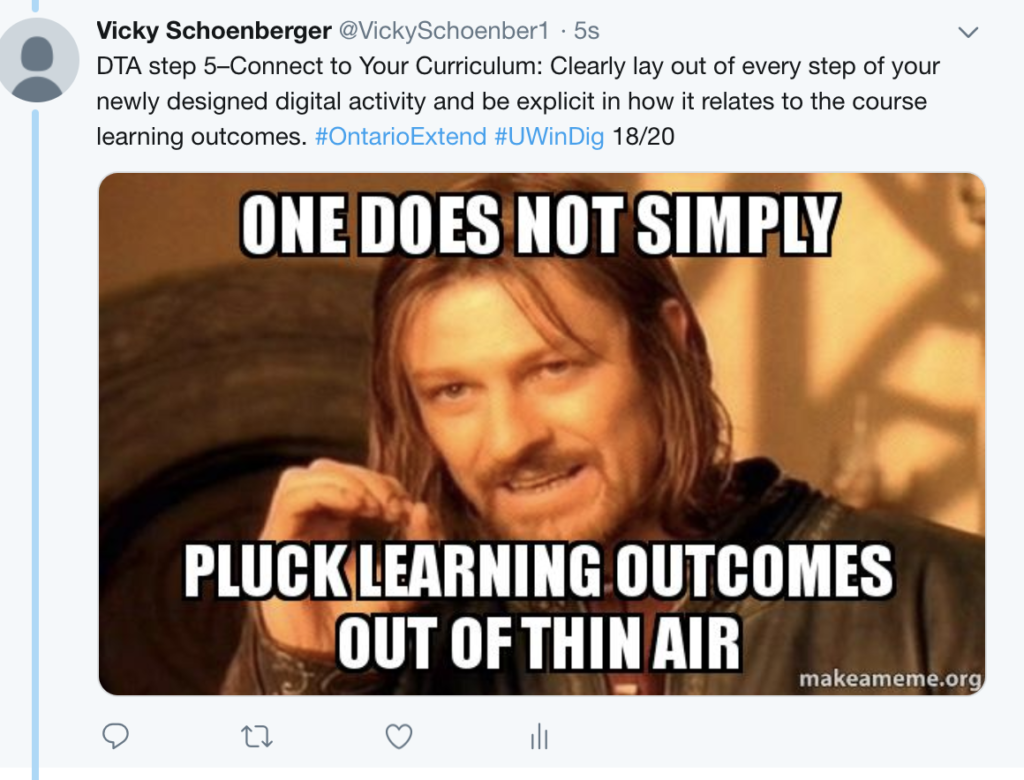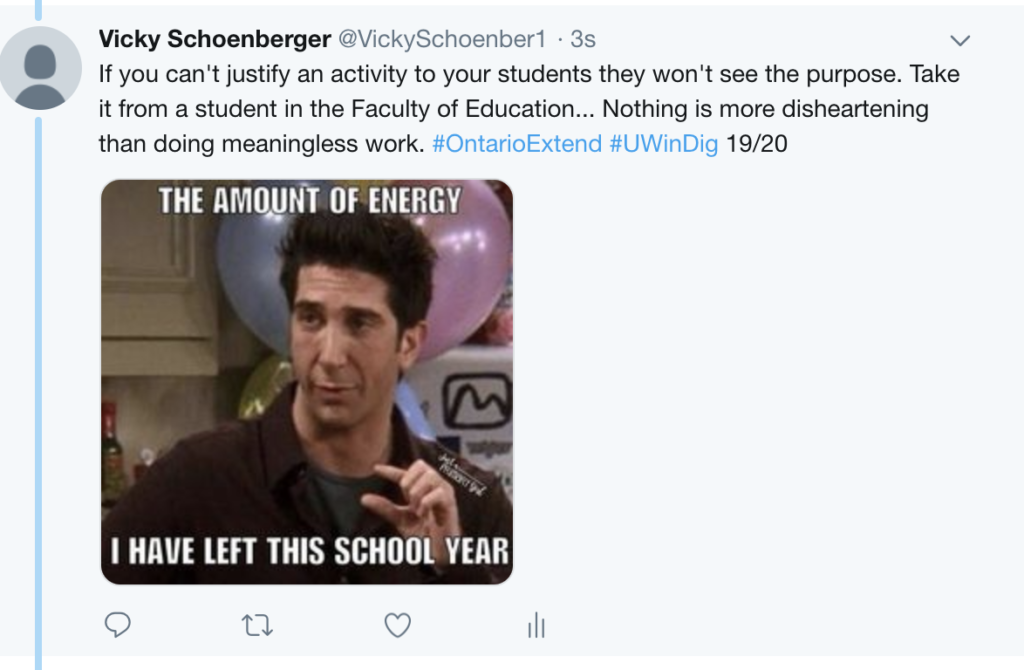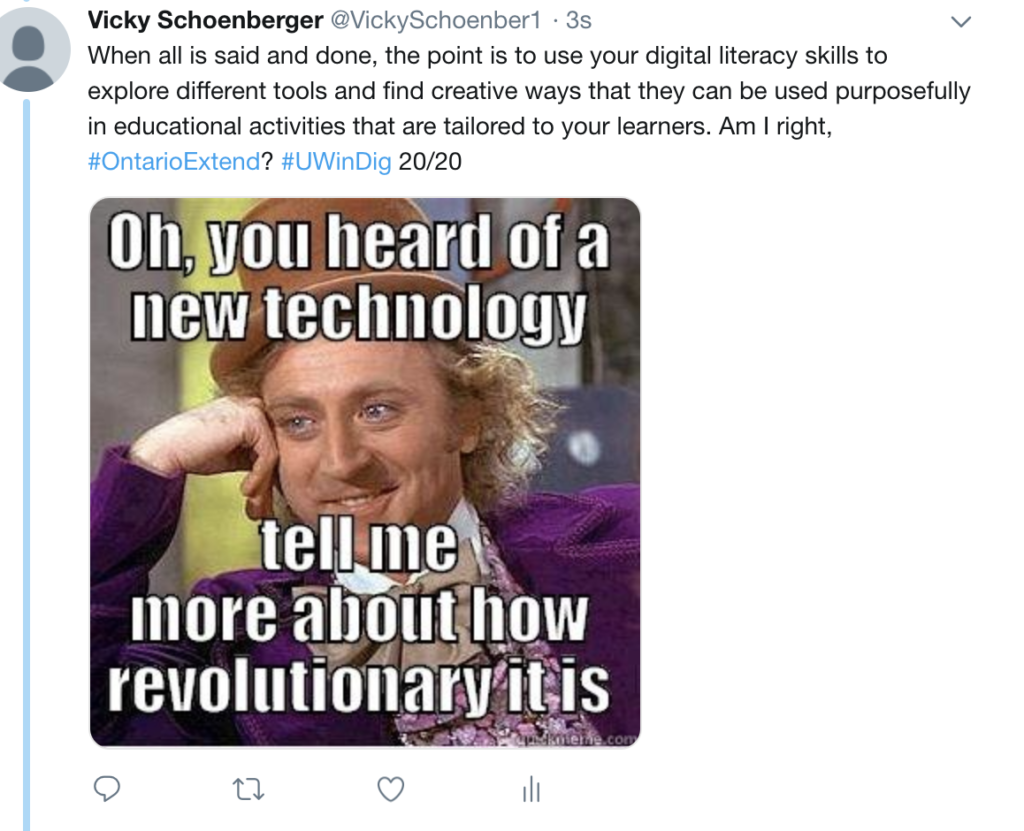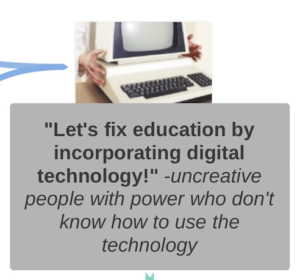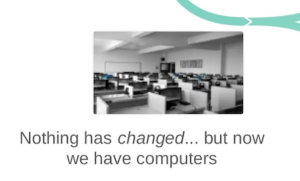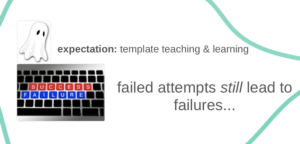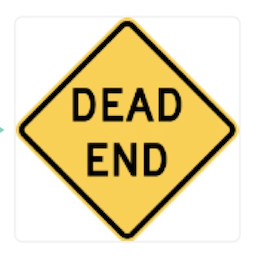Using technology in the classroom is a daunting task for even our generation. Ontario Extend’s Technologist Module is one way to garner tips and inspiration on how to use digital tools to enhance and achieve activities that would otherwise be impossible. Even when inspiration strikes for a great digitally integrated activity, with so many platforms out there, it’s important to have a strategy in place to know how to select which ones. After going through the module myself, I used the tips and strategies to help me choose the platform that would be best at facilitating what it was I wanted to say for this multimedia reflection. I considered what information I was trying to convey and how I wanted my finished product to present it. Once I decided that I had mostly text, I knew something like an infographic wouldn’t be right. Then, I considered how the layout should appear based on how my thoughts were seemingly structured in my head. I could tell that I was thinking in a more linear fashion, and therefore I knew that something like a mind map wasn’t ideal for what I was trying to do. So, when considering that I wanted something more linear in structure that could handle a fair amount of text, a Twitter Essay seemed the clear choice out of the usual platforms (canva, coggle, powtoon, etc…). I found this process to be more efficient than how I chose the platforms for my other two reflections. For those ones, I chose a platform first, mostly at random, and then let that dictate what information I presented and how. This time, by considering the information and end goal first, the process of actually creating the reflection was much smoother for me because I didn’t feel as constrained and my ideas matched well with the characteristics of the platform.
Overall the module offers some good strategies, but there’s no way around the fact that integrating technology in a purposeful and meaningful way requires creativity, research, and for most of us, a continuous learning curve.
